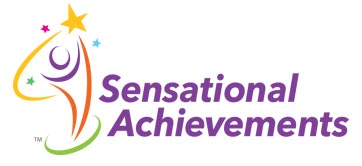Below is a list of frequently asked questions. If you do not find the answers you are looking for on our website, please contact us and we would be happy to discuss any additional questions you may have.
What is occupational therapy with a sensory-integrative focus (OT-SI)?
Occupational therapy with a sensory integrative approach is designed to improve the ways in which a child organizes sensory information to effectively respond to the demands of their environment. Treatment occurs in sensory-rich gym environment with specialized suspended equipment. Through playful and supportive interactions with the child, he/she learns how to explore and engage in sensory experiences that foster appropriate responses to sensory information. Over time, these responses generalize to the child’s everyday activities and allow them to participate in meaningful activities such as playing with their peers, learning, and developing independence in life skills.
My child’s teacher told me that my child has “sensory issues” and might benefit from occupational therapy. What does that mean? Does this mean my child has a learning disability?
Not necessarily. Although children with learning disabilities, attention deficit disorder, and autism spectrum disorders often exhibit signs of sensory processing disorder as well, a child can have a sensory processing disorder exclusive of another diagnosis. Often these children are just as intelligent as their peers or even intellectually gifted. They just need to be taught how to choose appropriate activities that meet the needs of their bodies and teaching styles should be adapted to the ways in which the child learns best.
Won’t my child just “grow out of it“or get better with practice?
All children progress at a slightly different developmental rate. It is possible that a child will continue to develop without intervention. However, if typical gross motor, play, and academic activities do not seem to be providing your child with enough of the “right” experiences to strengthen his/her areas of weakness, your child shies away from activities that are challenging for him/her, or your child does not initiate exploration of the environment and needs activities to be set-up in order for him/her to participate, then your child will likely benefit from more structured intervention. Additionally, if your child’s development in a particular area is significantly below that of his/her peers, services are recommended to assist your child in achieving age-appropriate skills.
Why does Sensational Achievements do a vision screening?
A vision screening is conducted as part of an occupational therapy screening to determine if there are functional vision deficits that may be impacting your child’s academic success. This is NOT a test of visual acuity (how clearly your child sees). This screening evaluates your child’s eye movements (ocularmotor skills) and how well your child’s eyes are working together to perform such skills as scanning a page, shifting attention to copy from the board, focusing on tabletop work, and filtering out visual distractions. Monitoring the development of these skills has become extremely important as the amount of screen-based learning and play has increased, affecting the amount of time children spend in activities that support development of ocularmotor skills such as outdoor play and ball play.
What is the difference between school-based occupational therapy and private clinic-based therapy?
School-based occupational therapy focuses on interventions and skill development that support classroom participation and academic success. It may include support strategies that teachers use in the classroom such as movement breaks, warm-up exercises, sensory diet activities, and organizational techniques. Additionally, occupational therapy sessions focus on the development of postural, motor and visual skills necessary for academic tasks including writing, manipulating arts/crafts materials, and drawing.
Clinic-based occupational therapy often addresses a broader variety of areas that may be impacting socialization, independence in self-care, and sensory processing abilities that impact self-regulation, coordination, and play skills. Clinics often utilize suspended equipment and a variety of other equipment not available in a school-setting to correct underlying muscular and nervous system deficits. Depending on your child’s needs, he/she may benefit from one or both types of interventions to achieve his/her maximum potential.








